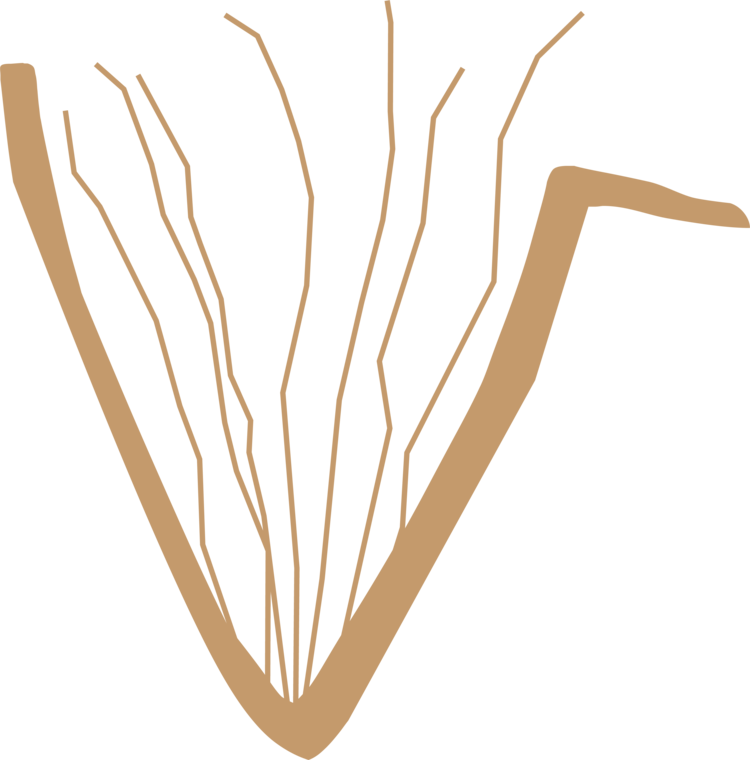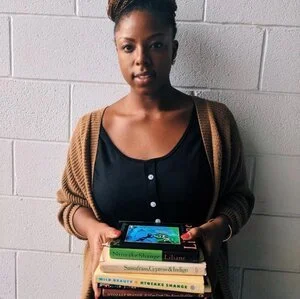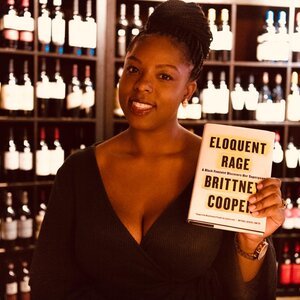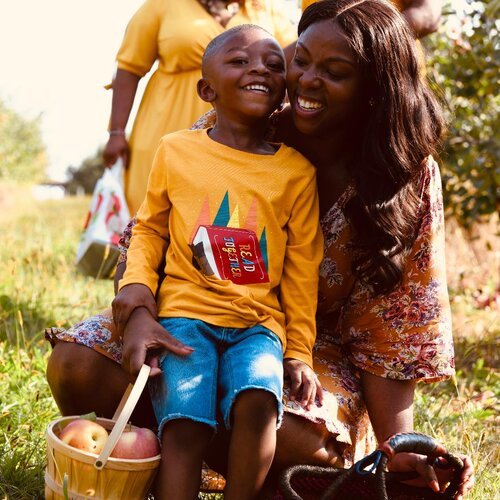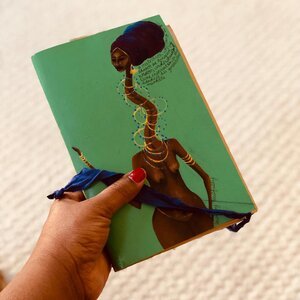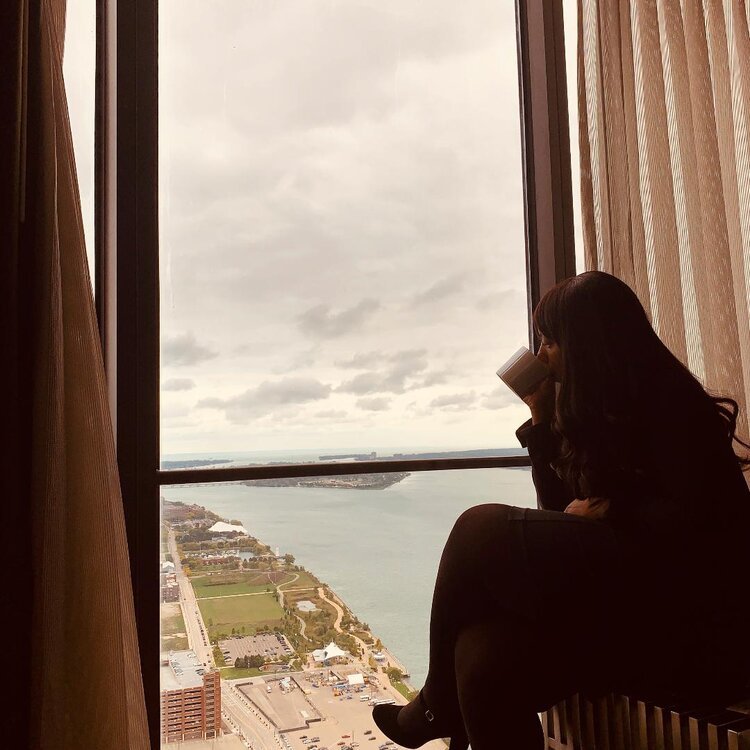Journals + Journeys: Courtney Coulter
The "Journals+Journeys" series features
Vagabroad diarists sharing their journey with journaling--
for your inspiration.
Courtney Coulter is a 35 year old engineer born in Alabama and raised all over the world. She’s an aspiring novelist, a book reviewer, and avid reader of Magical Realism, Fantasy , and Science Fiction. You can visit her bookstagram @CoCo_Chasing_Adventures to hear her ramblings on books coupled with amateur photography and sometimes a little poetry.
When did you start journaling as a practice? Why do you continue it today?
I started journaling at around 10. It was something I kept private- journaling was discouraged by my parents. There was a fear that someone would discover my writings and interpret the words as signs for help - that perhaps someone would read too deeply into the words and assign a meaning that wasn’t there. So, I stopped after my parents discovered my journal. They were (in their minds) protecting me. I restarted journaling, in earnest, after having my child in 2015. I don’t write for the gaze or interpretation of others. I write for myself. It’s therapeutic. If someone discovers a meaning that they connect to in my writing, that’s powerful to me - because my words are true and honest. My experiences and thoughts are at a particular space in time and they become tools of reflection. I see growth in my writing. My journal is living proof that I can make it through life’s worst situations.
“...it’s my duty to reflect (honestly) on my own experiences for future generations of women like me.”
I HAVE to follow up on this question because a myriad of women have told me in interview and in person that familial discovery/violation of their journals has forever scarred their desire to keep one. Can you share your mental and process emotional process of healing that trauma for yourself? What did you have to decide to overcome to reenter the journaling practice?
When I was younger, my diary was mostly about weight. I’ve struggled with obesity my entire life. The discovery of my journal was humiliating- it had my weight and what I ate. It described what I wished I looked like and all the celebrities I wish I could wake up and become (I was a fan of Mariah - there’s much more to dig into about that fascination). If it wasn’t about my weight, it was about my dreams of becoming some powerful woman in NYC. I love my parents, and this is hard to admit - but discontinuing that journal was like saying I wasn’t allowed to dream. And instead of addressing the colorism and the lack of self confidence - they told me to “buck up”.
I reentered journaling because I had no choice. I felt so alone after having a child. I was not brave enough to go to therapy yet. And as shallow as it sounds, there was this beautiful journal that called to me. It started with just one or two lines, about how I felt that day. Then my scribblings became long complicated things. Not sure if anyone who read them now would understand anything there. For me, it was about removing the cork on the bottle. I decided that to be healthy for my husband, my child, better yet MYSELF - I needed to DREAM again. I needed to desire life again. This act of writing in my journal required overcoming my desire of “appearing” OK. Journaling is admitting that you have something to say, and that whatever it is, you’re willing to face it, dream about it, laugh at it or cry.
That being said, do you fear that someone will find your journal?
Yes. My writings are raw, filled with emotion and unfiltered. They are snapshots of the happiness or anger at that point in time. Sometimes it’s just musings on weather, dreams and sleepy thoughts. I imagine that in old age, it won’t matter. I will laugh and cry with my grandchildren about the things that were important to me. My child will be both inspired and disappointed in my decisions. But honestly, let me mature beyond the moment! I spoke a little earlier about my fears of keeping a diary in youth. Perhaps, these thoughts are still embedded within me.
What date did you start your Vagabroad Journal?
I can honestly say I have one of the first Vagabroad Journals! Was it May 2013? It’s covered with images of Angela Davis and has a hardened spine. It took me a while to write in it because I treasured the art and beauty of its creation. My newest journal, from this past December, is well worn and filled with my thoughts. My entries are stored in something as beautiful as the history of black women. I see my journals as a form of hidden art detailing the black woman’s experience in my time. I hope that while my thoughts and words are of this time - my children will be deeply connected to the words, tears and laughters engrained on the pages.
Is there a historical legacy you believe you are fulfilling when you put your narrative into writing?
Yes. Your journal stands as testimony for the human experience. Our stories, in our own voice, are the history books for others to study. When a person reads a textbook, they are reading someone’s interpretation of a timeline of historical events they did not witness. People study the commentary and analysis from individuals who offer hindsight connections to disparate occurrences. But the journal is real and present. When you read someone’s intimate thoughts- the narrative is alive and true to what’s transpiring. As a black woman, I wrestle with emotions of not connecting to the stories others have offered about the enslaved and oppressed. It’s my duty to reflect (honestly) on my own experiences for future generations of women like me.
Ironically enough you’re the second VGB diarist I’ve interviewed who is also bibliophile. Can you talk about the power of books vis a vis the perversely distracting nature of the media?
Recently, I wrote a letter to my friend’s daughter about the loneliness of being a black woman in STEM. Reading and journaling is how I summon power and strength. The first time I read Ntozake Shange I found myself. I begin celebrating the beauty in my skin, the strength and lessons in my pain- I began connecting to other women around me through shared experiences. Media will give you artificial advice - “lean in” , “be a boss” “don’t cry - hustle”. But Dr. Brittney Cooper gives voice to my rage as a black woman (Eloquent Rage) and Dr. McMillan Cottom writes essays in THICK to connect to the real power of black womanhood. Dr. Ibram Kendi gives me tangible steps toward tackling racism and embodying antiracist principles. From a fiction perspective - I see myself in the adventures of Rena Barron’s Kingdom of Souls and the guilty pleasure romances of Jasmine Guillory. Books are powerful because it offers advice, adventure, reflection and connection.
How has copious reading made you a better writer?
My writing is evolving and reading is a key part of that. Reading helps me explore ideas and think beyond the typical tropes in storytelling. I write fiction - especially fantasy and magic. But journaling and reading about real experiences, and true emotions enhance my writings even in the magical realms. One example is how I am learning to describe my pain after my parent’s divorce. I went from superficially describing being left alone and becoming a caretaker of my mother to reading and writing stories about functioning in that loneliness. Here’s an example from my journal:
“My son looks exactly like my father. Is it disgusting that I squeeze on my child
just to remember the love I shared with my daddy? Is that too much pressure for a 4 year old?”
I wrote this after reading Where the Crawdads Sing. I felt less shame in missing my father after reading the protagonist’s tales. My father has been a villain of sorts in my life. But the truth is- I miss him. I suppose reading forces me to look beyond the topical and shallow emotion of sadness and dig deep into true vulnerability.
Knowing you have an Ntozakian approach to journaling (and considering how REAL it is for many of us working through this in realtime): What are a few writing suggestions for colored girls who are journaling their way through “daddy issues”?
Be absolutely honest and honor the emotions you have toward your father. I spent a lot of time denying how I felt. To miss him was a betrayal of my mother and it felt like a back and forth emotionally abusive relationship. There was a lot gaslighting and commands of remembering who was the ”parent”. Through writing, I realized what I missed most about him - it was the certainty that he would defend and protect. With him gone, I began shouldering the burden. I felt responsible for my family and I missed depending on my father for strength. In reality though, I had long ago moved passed needing him or leaning on him in that way. I had to let go of that relationship (for now) because I didn’t want to pass down that kind of hurt to my son (re: generational trauma).
I’m still working through it though - so I hope I have a better answer in time. Discover and rediscover your strength in your writings and reflections. Take your time in your healing. It is your responsibility to take care of yourself. We must build and store up our strength for the moments we need it most - the moments the tears flow and our heart aches for what we miss most. Our journal is one of our storehouses- keep it sacred.
What book has generated the most journaling for you?
Ntozake Shange’s library deeply affected my journaling - really my writing in general. There are no rules to her writing. The emotion on the page is sincere - she chooses the perfect word in the perfect punctuation to correctly identify happiness or pain.
“but bein alive & bein a woman & bein colored is a metaphysical
dilemma/ i havent conquered yet/ do you see the point
my spirit is too ancient to understand the separation of soul & gender/ my love is too delicate to have thrown back on my face”
~ Ntozake Shange
Something about her writing hits hard. It’s not pretentious or perfect in the literary sense- it’s in the language of [a] hurt black woman. In that way, it’s exactly perfect and I connect to her writing at the cellular level. Her passing last year was immensely difficult for me. It felt like I lost a Godmother or an angel.
When are some times in your life you’ve found to be absolutely necessary to pick up your journal and write?
After having my son, I struggled. There was so much discussion on the beauty of motherhood. Shallow memes tell women to “bounce back” and to “lean in”. Where was the honest conversation about body dysmorphia, or the changes in your relationship with your spouse? I felt alone in a house surrounded by people. This feeling grew exponentially as my son grew and I returned back to work. When I returned to journaling, I started to feel less alone. Talking and reflecting with myself became a kind of therapy- my own voice became my best friend. Now, journaling is the first thing I do when I have something to celebrate or when emotions are overwhelming.
Incredible. It’s amazing to see how you carved that narratorial journey for yourself during that season. In journaling those times did you by any chance consider your journal as being a book of insights for your future descendants who may have a similar experience?
Yes, I recognized that my journal would be a reference for others (or even myself). It would serve as proof that I survived - and so can they. For that reason, my journal deserves honesty.
I lived with my maternal grandmother in college. Her home is in a small, economically poor town in Alabama. And in all the things that are ugly, she had the most beautiful garden that stood out amongst the old rickety homes. In her home, she had a room of old and delicate things . That room was the nicest and most respected space in the house. It was the room responsible for keeping our history. My grandmother believed that even the colored folk had history and stories worth preserving. So her room had pictures of distant cousins and descendants from long ago. She kept a shelf of old books and Jet magazines with black faces that I admired. On that same shelf, my grandmother also kept several diaries from my older cousin. The discovery of these journals was like finding a mirror. Her insecurities, goals and thoughts on our family were nearly the same as my own. There is much to say about generational curses and familial trauma- but what was more important to me in the discovery was that I wasn’t alone. She survived, and she figured out how to love and chase her dreams. I hope one day someone discovers my journal and connects to the words in that way. I hope that my reflections help my descendants unpack generational pain and overcome long held traumas - even if I don’t figure it out in my lifetime.
“someone must chronicle
the tears of the mothers,
and the broken egos of the fathers.”
I encounter the same feeling—“I am not alone”—when I read journals by Black and brown women in history. Not much can compare to that sentiment. The interconnections of concerns and feelings and yes even trials blows my mind every time. Their unsurity or faith in writing is always encouraging. To me, these journals make us less of a myth and more humane. Again, I have to ask: Can you briefly speak about your findings about generational curses and traumas discovered through our relatives’/ ancestors’ journals? Did what you learn give you insights on how to move forward?
What’s not settled in one generation, finds its way into the next. This trauma exists as family secrets and fears labeled as wisdom. My mother’s cousin died in a swimming pool accident at a young age. She was a great swimmer, beautiful and full of potential. Our family was scarred from that incident, that fear manifested as fear of swimming pools. Besides the typical avoidance of water that plagues black girls with relaxed hair, my mother thought of pools as some type of omen. She never addressed that fear and heartbreak of losing someone. Later, my mother would say - “stay away from the edge” and “don’t take Mac to the pool”. She was worried that history would repeat itself - that somehow there was a penalty of being that beautiful and so full of life and potential. That penalty was some tragedy to be avenged by water. I’d like to say that I viewed my mother’s fears as illogical. But truthfully, I understand them. It has always felt like good things weren’t meant to happen to us. Reading the journals of my cousin, or reading my own I see this fear play out. It’s almost like we are all waiting for the proverbial shoe to drop.
Honestly, I live with this anxiety. It looks like humility, but really it’s this fear that the universe will take away what’s good from us. That somehow if we underscore the potential and beauty in our lives - we can preserve it. I saw those same fears in my cousin’s journal, in my grandmother’s oral stories, old video tapes and pictures. I see these fears played out in old sayings like - “a glass house will shatter” and “mark my words”.
But what I also saw was my cousin triumph over many of these fears. She left Alabama shortly after high school. She refused to be silent about family secrets, and she chooses to create a life for her and her son that is beautiful and full of potential - without apologies. I imagine this was hard for her and I would love to read her diary now (if she keeps them). We talk every day and our sons are close in age - I’ll probably ask her about it. She’ll be embarrassed I’m sure! But she should know the power of her words and how she created a path for me to heal.
Is there something/ a set of actions you do to create space and settle down before you take your journal out?
My journaling may only come in fifteen minute sprints, but it usually includes my bed, a candle and cozy pajamas. My son is usually tucked in his bed and my husband has started his own nightly routine. Those precious minutes are sacred. If I’m lucky, I can get a whole hour of writing in on a Sunday. My son and husband are usually out getting haircuts and I can write in the bath. The afternoon nap that follows is amazing.
Has your motivation for journaling changed over the years?
Journaling was once for dark moods. Now it’s for all my moods. Sometimes it’s just about the mundane aspects of life. The weather, a funny joke, plans for the day. Engaging myself is the goal. Reflection is the objective.
Many women feel like journaling is a luxury they can’t afford because they have a 9-5, family, etc. Can you speak to this woman? How can we make time to journal when we lead busy lives? Why is it worth it?
Make time for yourself. It’s hard because life pushes and pulls you in 100 different directions. But do it anyways. Identify that 15 minute window that you can dedicate to yourself. I like the end of the day before resting - great for reflecting and decompressing. My husband spends that same time to write in his gratitude journal. Life gets busy, sometimes journaling slips. But if it’s but once a week on a Saturday morning or a part of my Sunday meditations- I make sure to schedule the time.
...Your journaling playlist?
“Autumn in New York” - Billie Holiday
“Heaven” - John Legend
“Feeling Good” - Gregory Porter
“Every Kind of Way” - H.E.R.
“I was here” - Beyoncé
“Django Jane” - Janelle Monáe
“W.A.Y.S” - Jhené Aiko
“Be Alright” - Kehlani
“Broken Clocks” - Sza
“Self Love” - Dreamville
ROBERT GLASPER
NINA SIMONE
ESPERANZA SPALDING
Are there any times when it’s significantly more difficult to write than others?
My parents divorced a couple of years ago. It was the hardest and lowest part of my life. Journaling was painful and each word written was like reopening a wound. Journaling, for me, requires deep honesty and vulnerability. So writing in deep depression is difficult and painful. But it’s also healing. If I can get myself to write on the page, the healing begins the moment I start to articulate the problem. The obstacle becomes less mystic - I gain power over the foggy thing that clouds my mind and makes nightmares. It becomes a thing I can decompose and analyze or seek help. If I can manage to write during those times, the writings tend to be my most beautiful-and when I read back over those entries I feel encouraged by the progress I’ve made.
I remember journaling my parents divorce... Challenging is an understatement to describe what it’s like to journal during such grueling life moments. What was your resolve to preserve those times—why did it matter to you to push through the pain and depression and have those circumstances and emotions archived? I believe this is a question many women battle with journaling. So many would rather write AFTER or when they’re “feeling better”. Why write in the “midst”?
I need to journal in the experience- it’s a part of my healing process and therapy. Capturing thoughts after an experience is great for historical analysis, but I have to survive the pain first. Getting the words on the page relieves the pressure that builds and bottles up inside. I suppose it’s a bit like photography. There’s the picture that captures the renewed and restored village after a long war. That picture tells the story of triumph and heroes - it’s an important story to tell. But there has to be a person that captures the dilapidated buildings and storm filled sky. Someone must chronicle the tears of the mothers, and the broken egos of the fathers. You have to be careful in erasing that part of the darker history when you only write in the “after”. Imagine the power in the diaries of the enslaved if we had access to them?
Is there a greater reason for you to keep a journal beyond just documenting your day to day life?
In an interview Ntozake Shange said:
"I write for young girls of color, for girls who don’t even exist yet, so that there is something there for them when they arrive. I can only change how they live, not how they think."
I don’t know if there are better words than that. I don’t know that my words will have as great an impact as hers. But I’ll try.
